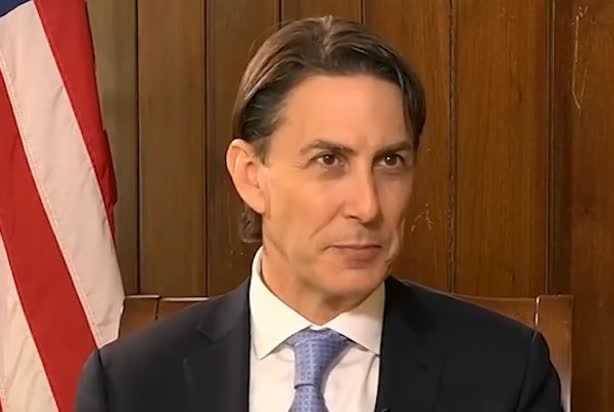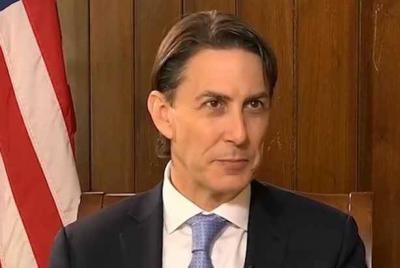The newspaper "Al-Jumhuriya" noted that despite the approaching month of September and what it may bring in terms of maritime developments following Israel's announcement to begin extracting gas from the Karish field, uncertainty prevails in the maritime border demarcation file between Lebanon and Israel, as well as in the mutual threats between Hezbollah and Israel. While it has been reported that American mediator Amos Hochstein will arrive in the region in a few days, sources involved in the demarcation file confirmed to "Al-Jumhuriya" that nothing is assured at this point.
Interestingly, Israeli media has been reporting conflicting accounts regarding this file; some indicate that Hezbollah and Israel are not interested in military confrontation for their respective reasons, and that Israel could delay the gas extraction from the Karish field for several months to reduce tensions. However, others suggest that the likelihood of confrontation is increasing.
A report from the Israeli newspaper "Israel Hayom" highlighted that the threats made by Hezbollah's Secretary-General, Hassan Nasrallah, are taken seriously by the Israeli security establishment, and these repeated threats of war are seen as a new escalation that should not be ignored. According to the newspaper, the Israeli security apparatus must take Nasrallah's threats seriously, and it needs to investigate hidden motives that might drive Hezbollah to initiate a round of fighting in the near future. It hinted that the Israeli military leadership is inclined to respond broadly if any battle occurs, indicating significant preparations are ongoing.
In the same vein, the Israeli newspaper "Yedioth Ahronoth" stated that Nasrallah's repeated threats have caused concern in Israel, revealing that the military leadership in northern occupied Palestine and the air and naval forces have begun preparing for the possibility of armed conflict, with plans being developed accordingly. It noted, "Even if Hezbollah plans for just one day of fighting, and even if Israel is not interested in war, the issue for both sides is that things can deteriorate into a real war very quickly, which neither side wants."
The newspaper concluded by saying that all eyes are now on the beginning of September, when American mediator Amos Hochstein is expected to return to the region. It also mentioned that Hochstein might bring with him a final proposal that both sides (Lebanon and Israel) could agree to, contingent on Hezbollah not surprising everyone with anything else.
Furthermore, "Al-Akhbar" reported that information is conflicting regarding the content of the "proposed solution" that Israel claims it intends to present to Lebanon through the American mediator Amos Hochstein in the maritime border demarcation file. Channel 12 in Israel reported that the proposal includes "an Israeli concession for an area within the sea (thought to be the southern part of the potential Qana field) in exchange for a Lebanese concession of an area close to the shore."
Awaiting confirmation of the proposal's content, it drew attention to Israel's "recycling" of its old demands in the format of "land exchange" which Lebanon previously rejected. Sources following the file stated that they are awaiting the official receipt of the proposal to act accordingly, but indicated that the enemy's request for "an area close to the shore" in exchange for its concession of "an area in the sea," aims to make a "precise engineering adjustment" to the point of reservation "B1" to align with Israeli objectives and allow for nudging the "Ras al-Naqoura" point several meters northward, which would significantly affect the starting point of the maritime border.
The enemy's dilemma, according to concerned references, lies in its perpetual fear of the possibility that Lebanon might revert to proposing "line 29" in the future if a substantial change occurs in the Lebanese political makeup. It is known that the "Ras al-Naqoura" point influences the methodology of drawing this line, as it twists southward to reveal the occupied Palestinian coast at the important tourist spot "Rosh Hanikra," which is considered detrimental from a security perspective to the enemy. Also, any alteration in the "B1" point would provide a gain for Tel Aviv regarding control over the crucial "Naqoura Tunnel," classified as "occupied land" by Lebanon.
It is important to note that the coordinates of the contested point "B1," which Tel Aviv maintains, are clearly defined and internationally marked in accordance with the demarcation agreement with occupied Palestine signed in 1923 and recognized by the former "League of Nations." It was reaffirmed under the "Armistice Agreement" of 1949 between the Lebanese state and Israel, making it a final border point that cannot be altered or ceded according to Article Two of the constitution (no part of Lebanese territory may be ceded or abandoned).




